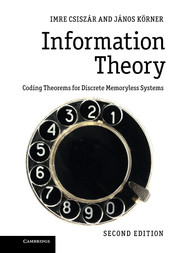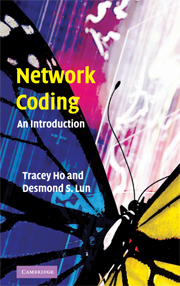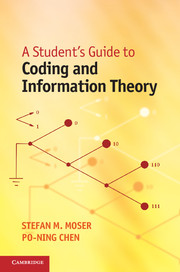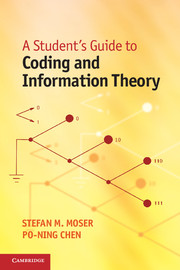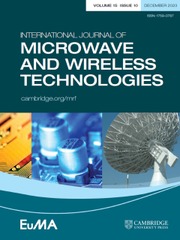Information Theory
Csiszár and Körner's book is widely regarded as a classic in the field of information theory, providing deep insights and expert treatment of the key theoretical issues. It includes in-depth coverage of the mathematics of reliable information transmission, both in two-terminal and multi-terminal network scenarios. Updated and considerably expanded, this new edition presents unique discussions of information theoretic secrecy and of zero-error information theory, including the deep connections of the latter with extremal combinatorics. The presentations of all core subjects are self contained, even the advanced topics, which helps readers to understand the important connections between seemingly different problems. Finally, 320 end-of-chapter problems, together with helpful hints for solving them, allow readers to develop a full command of the mathematical techniques. It is an ideal resource for graduate students and researchers in electrical and electronic engineering, computer science and applied mathematics.
- Fully updated and revised edition of a classic book in the field
- Presents deep insights and expert treatment of the key theoretical issues, from two of the field's pioneering researchers
- Includes new, unique coverage of information theoretic secrecy and zero-error information, and provides 320 end-of-chapter problems, with helpful hints for solving them
Reviews & endorsements
'The classic treatise on the fundamental limits of discrete memoryless sources and channels – an indispensable tool for every information theorist.' Segio Verdú, Princeton University, New Jersey
'Information Theory: Coding Theorems for Discrete Memoryless Systems, by Imre Csiszar and Janos Korner, is a classic of modern information theory. 'Classic' since its first edition appeared in 1979. 'Modern' since the mathematical techniques and the results treated are still fundamentally up to date today. This new edition was long overdue. Beyond the original material, it contains two new chapters on zero-error information theory and connections to extremal combinatorics, and on information theoretic security, a topic that has garnered very significant attention in the last few years. This book is an indispensable reference for researchers and graduate students working in the exciting and ever-growing area of information theory.' Giuseppe Caire, University of Southern California
'The first edition of the Csiszar and Korner book on information theory is a classic, in constant use by most mathematically-oriented information theorists. The second edition expands the first with two new chapters, one on zero-error information theory and one on information theoretic security. These use the same consistent set of tools as [the first edition] to organize and prove the central results of these currently important areas. In addition, there are many new problems added to the original chapters, placing many newer research results into a consistent formulation.' Robert Gallager, Massachusetts Institute of Technology
'The field of applied mathematics known as Information Theory owes its origins and early development to three pioneers: Shannon (USA), Kolmogorov (Russia) and Rényi (Hungary). This book, authored by two of Rényi's leading disciples, represents the elegant and precise development of the subject by the Hungarian School. This second edition contains new research of the authors on applications to secrecy theory and zero-error capacity with connections to combinatorial mathematics.' Andrew Viterbi, University of Southern California
Product details
January 2016Paperback
9781107565043
520 pages
248 × 174 × 24 mm
1.03kg
53 b/w illus. 347 exercises
Available
Table of Contents
- Part I. Information Measures in Simple Coding Problems:
- 1. Source coding and hypothesis testing: information measures
- 2. Types and typical sequences
- 3. Some formal properties of Shannon's information measures
- 4. Non-block source coding
- 5. Blowing up lemma: a combinatorial digression
- Part II. Two-Terminal Systems:
- 6. The noisy channel problem
- 7. Rate-distortion trade-off in source coding and the source-channel transmission problem
- 8. Computation of channel capacity and ∆-distortion rates
- 9. A covering lemma: error exponent in source coding
- 10. A packing lemma: on the error exponent in channel coding
- 11. The compound channel revisited: zero-error information theory and extremal combinatorics
- 12. Arbitrary varying channels
- Part III. Multi-Terminal Systems:
- 13. Separate coding of correlated source
- 14. Multiple-access channels
- 15. Entropy and image size characteristics
- 16. Source and channel networks
- 17. Information-theoretic security.

